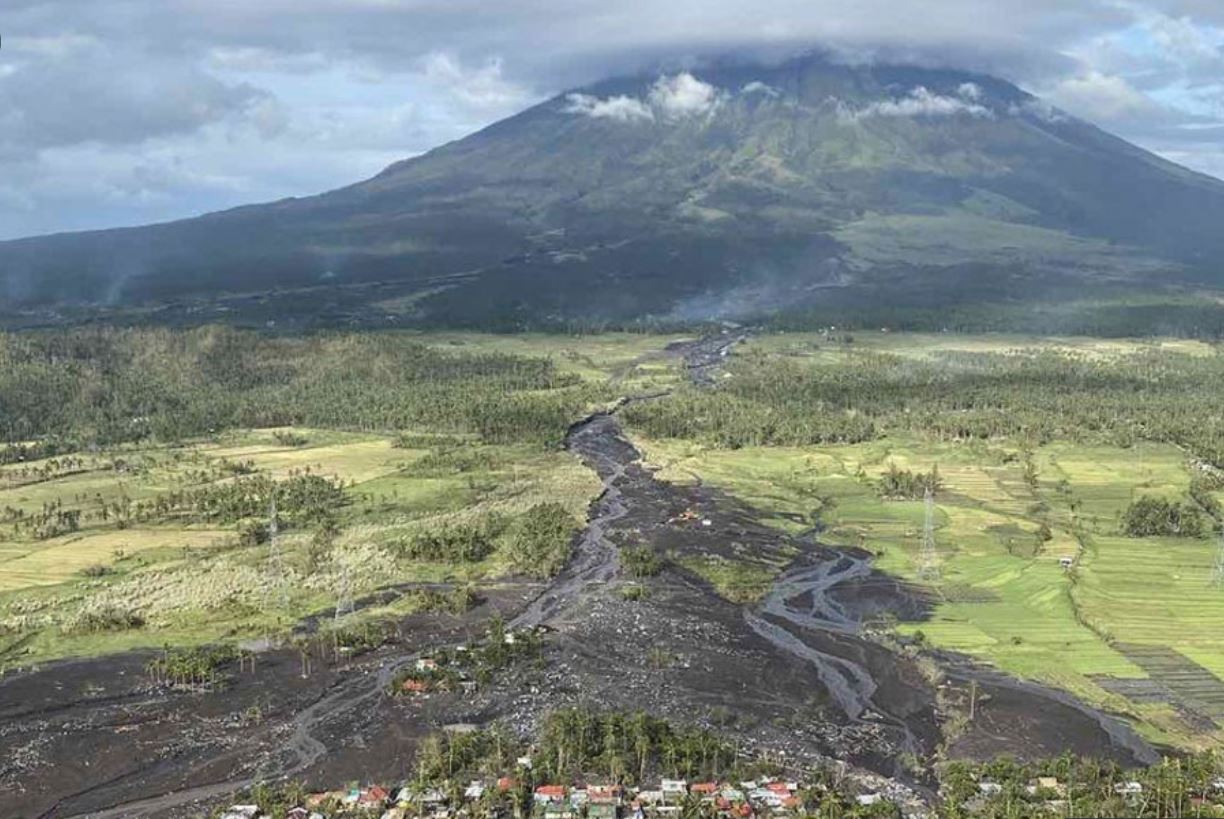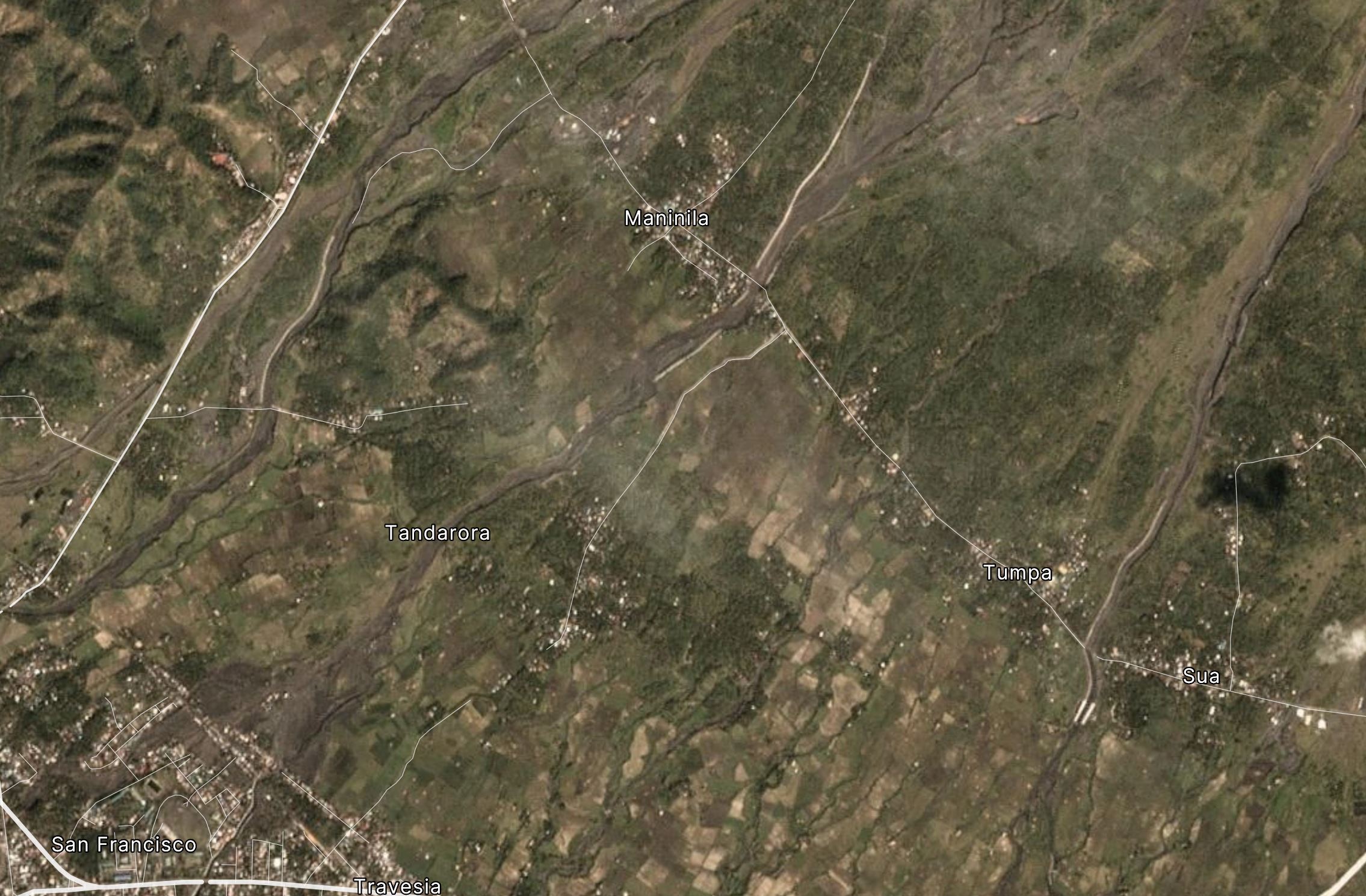19 November 2020
Guinobatan: a major lahar in the Philippines triggered by Super Typhoon Goni
Posted by Dave Petley
Guinobatan: a major lahar in the Philippines triggered by Super Typhoon Goni
Super typhoon Goni (known locally as Rolly) brought extensive heavy rainfall to the Philippines over the weekend of 31 October and 1 November 2020. Widespread damage occurred, including landslides in many places. Very significant damage occurred in the town of Guinobatan in Albay, caused by a lahar from the flanks of Mount Mayon, an active stratovolcano.
The best image that I can find of the lahar itself appears in a video interview of the governor of Albay province by ABS-CBN News:-

The aftermath of the lahar at Guinobatan in the Philippines. Image via ABS-CBN News.
.
Reports indicate that the lahar struck around about 150 houses in and around Guinobatan, with seven fatalities. There is now considerable controversy as to whether quarrying on the slopes of Mount Mayon may have been responsible for the lahar.
Planet Labs have captured a good image of the aftermath of the lahar at Guinobatan:

Planet Labs image of the aftermath of the lahar at Guinobatan. Planet Labs PlanetScope image captured on 13 November 2020. Copyright Planet Labs, used with permission.
.
The image shows that the lahar passed to the east of the village of Maninila and then through the isolated houses at Tamdarora before striking the northeast margin of Guinobatan (in the southwest of the image above). it is clear that many properties were destroyed in the lahar.
The imagery does not provide strong evidence to support or refute the premise that quarrying may have been an issue. However, Mount Mayon has a long history of deadly lahars. Wikipedia has a good description of these events, which includes a major event on 30 November 2006, in which at least 1.266 people were killed. Whilst most of the damage occurred in Padang, on the outskitrts of Legazpi City, large areas of Guinobatan were also destroyed. Another major lahar occurred in October 1766, again triggered by a typhoon, and again in 1825, when 1,500 people died.
.
Reference and acknowledgement
Planet Team (2020). Planet Application Program Interface: In Space for Life on Earth. San Francisco, CA. https://www.planet.com/


 Dave Petley is the Vice-Chancellor of the University of Hull in the United Kingdom. His blog provides commentary and analysis of landslide events occurring worldwide, including the landslides themselves, latest research, and conferences and meetings.
Dave Petley is the Vice-Chancellor of the University of Hull in the United Kingdom. His blog provides commentary and analysis of landslide events occurring worldwide, including the landslides themselves, latest research, and conferences and meetings.